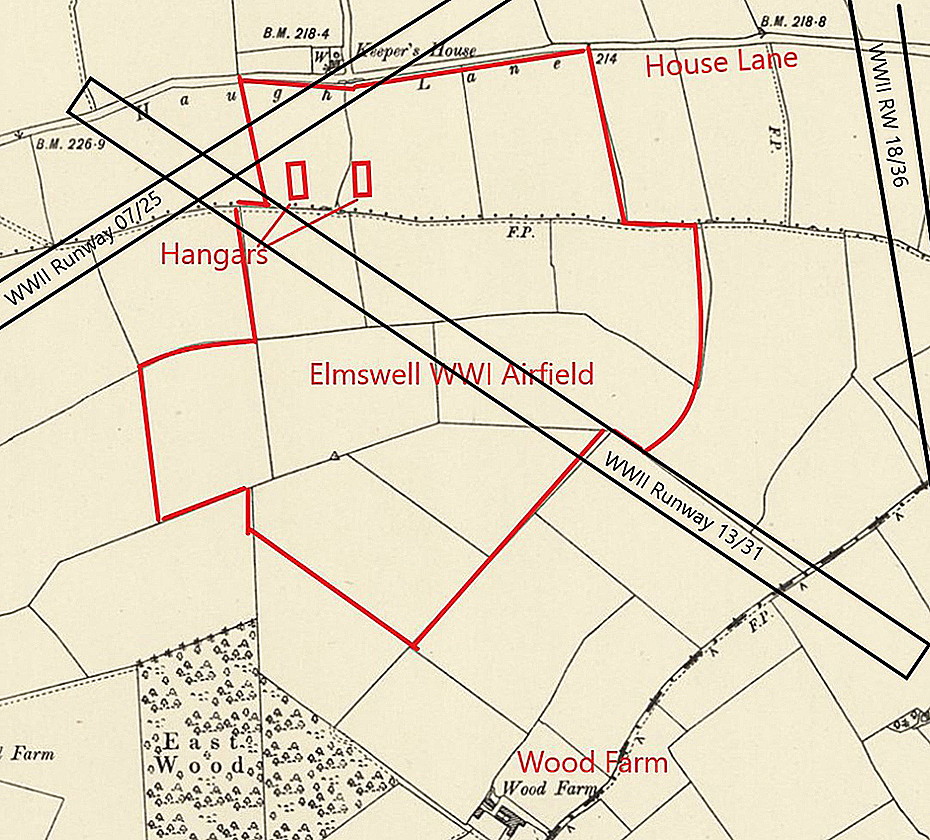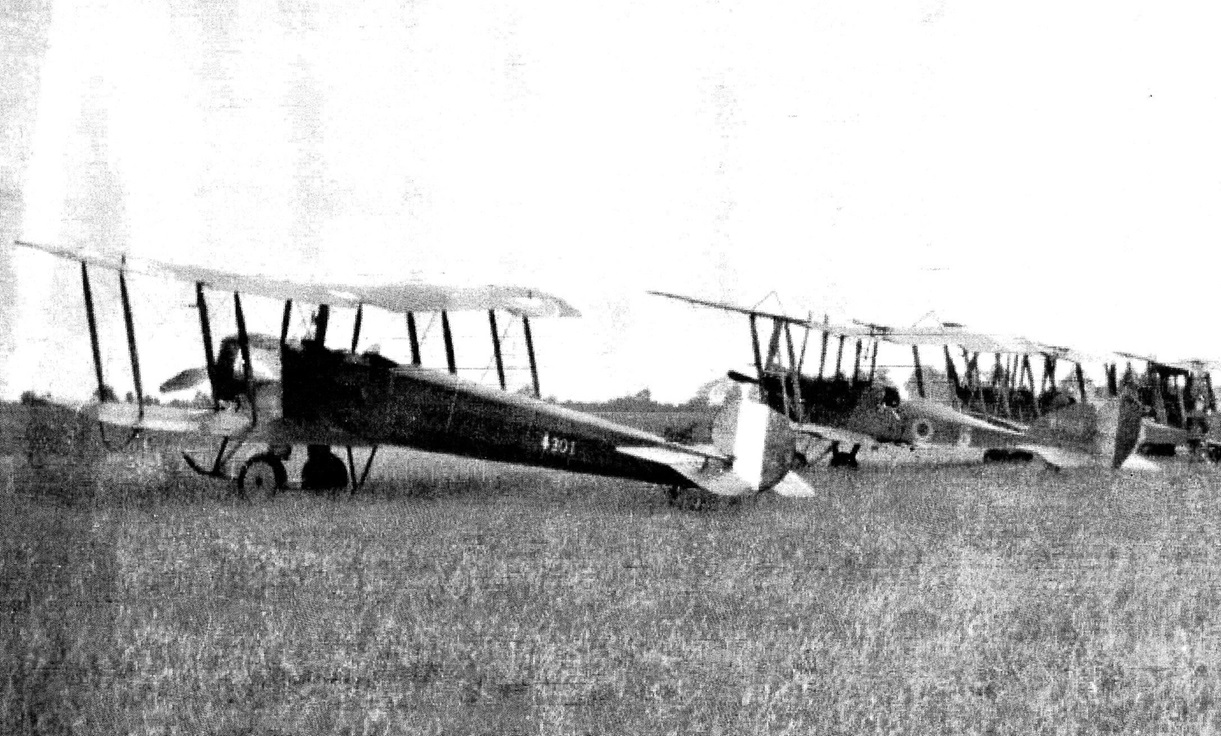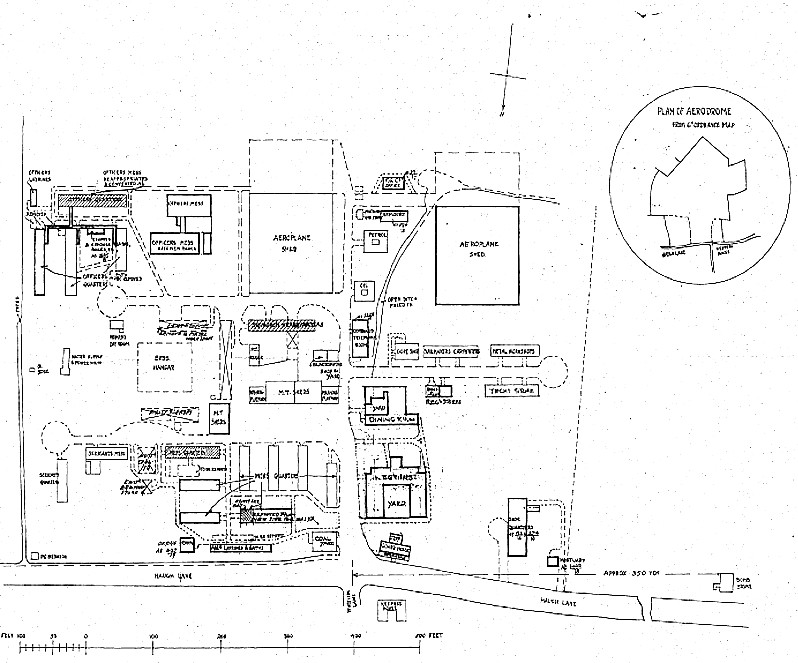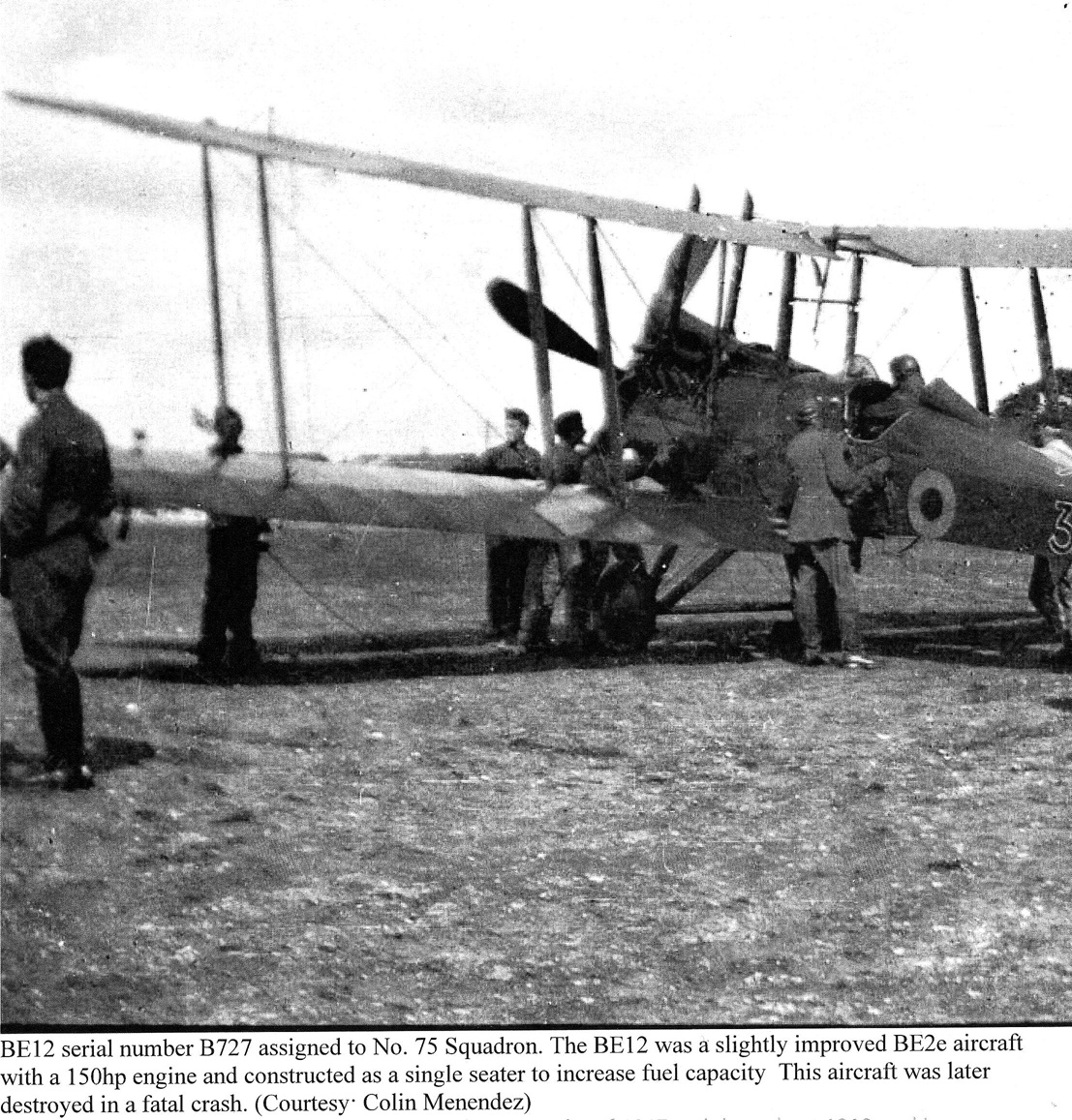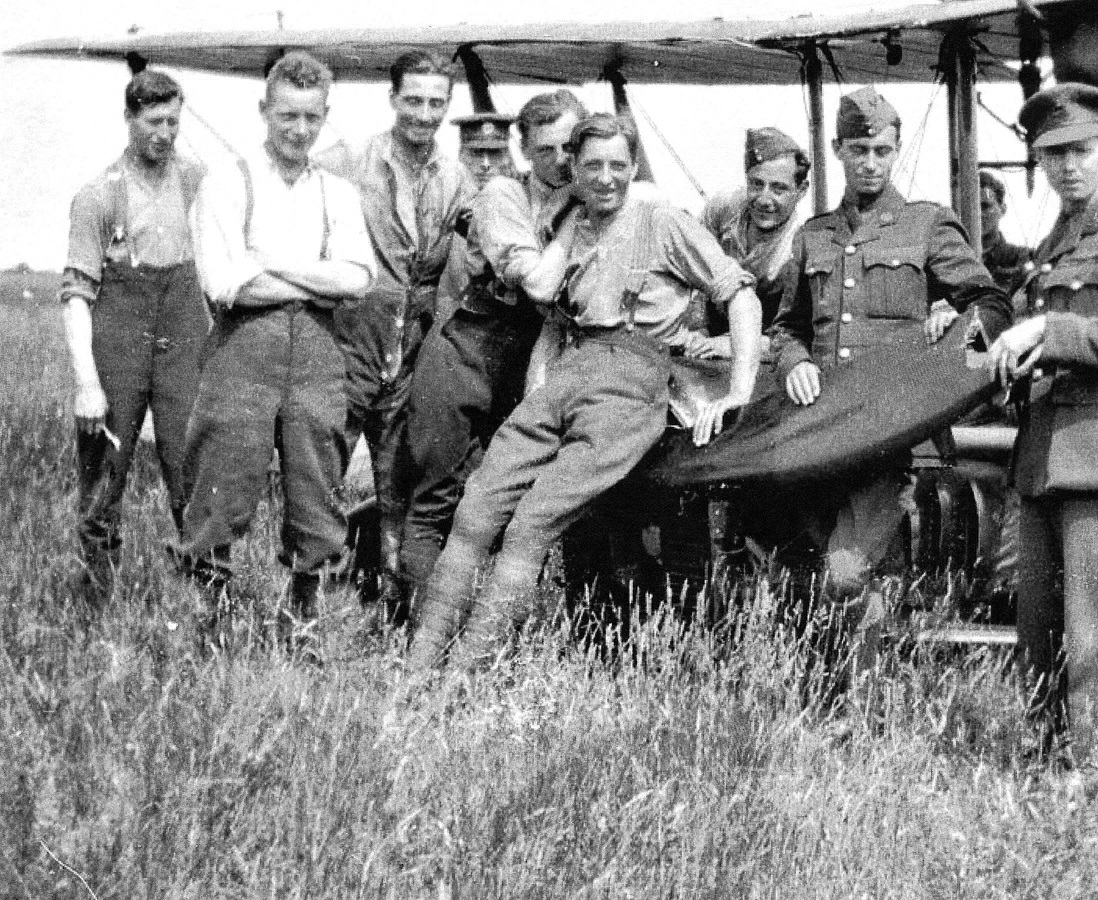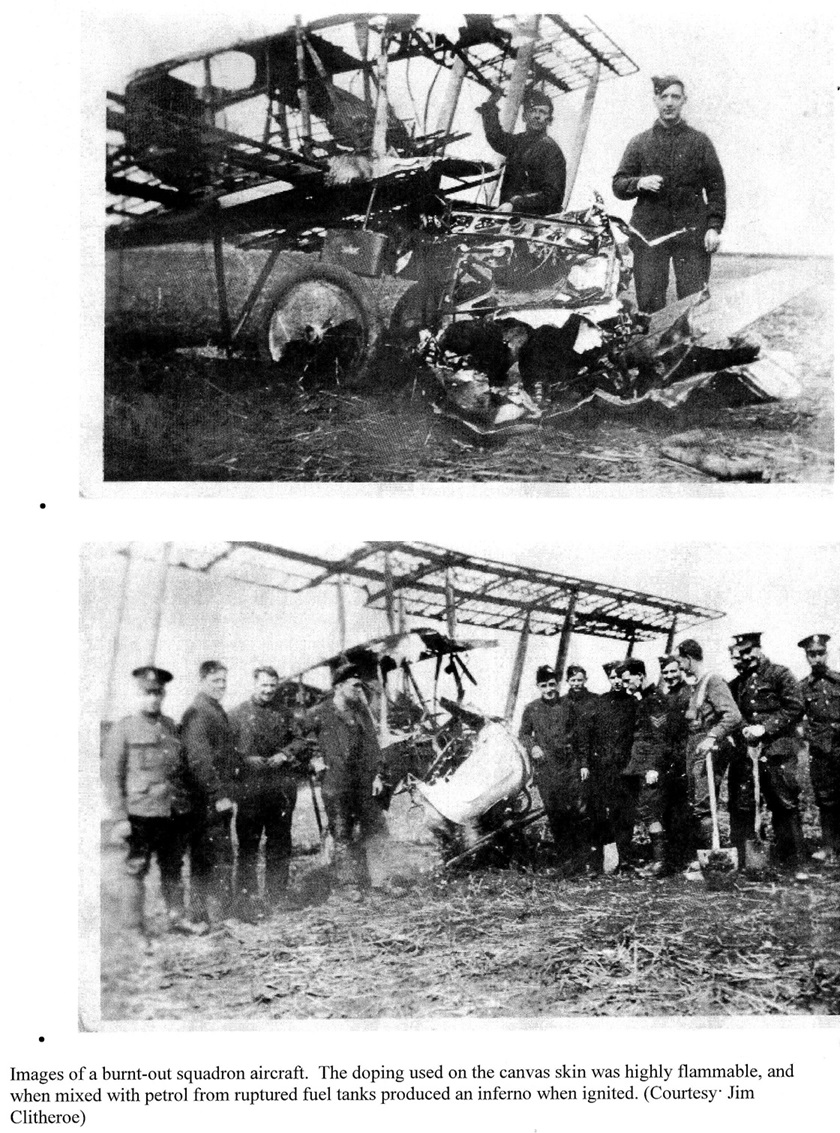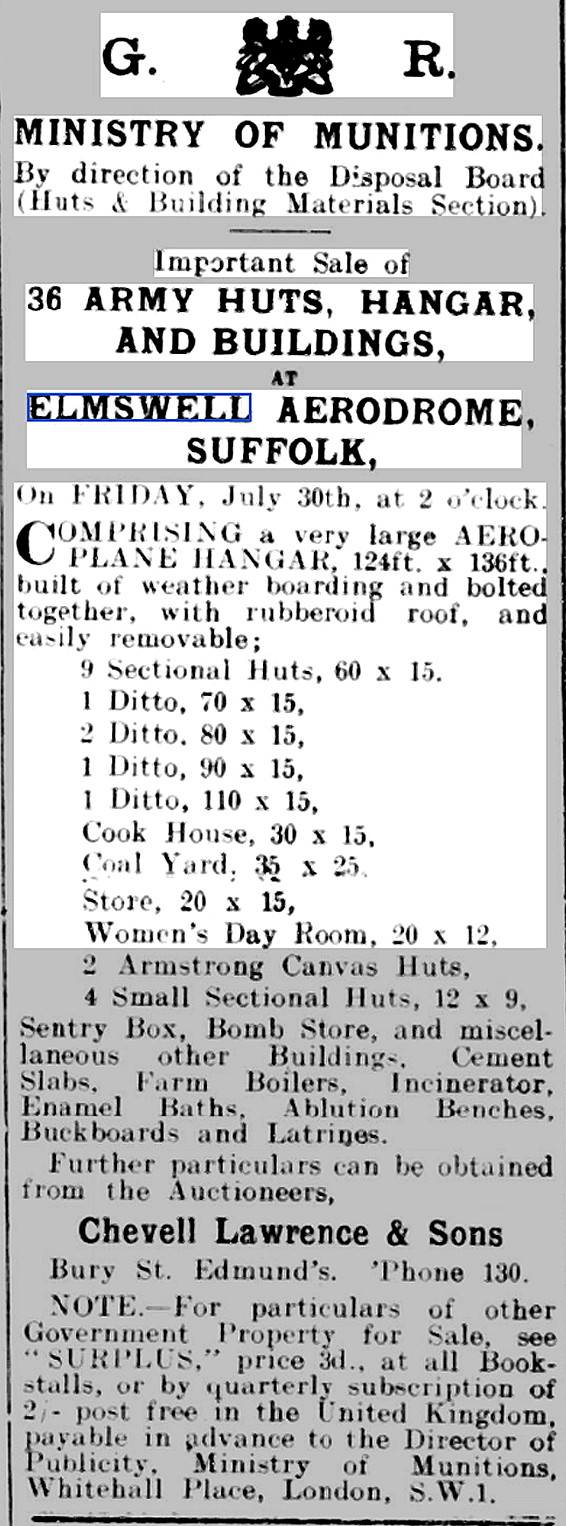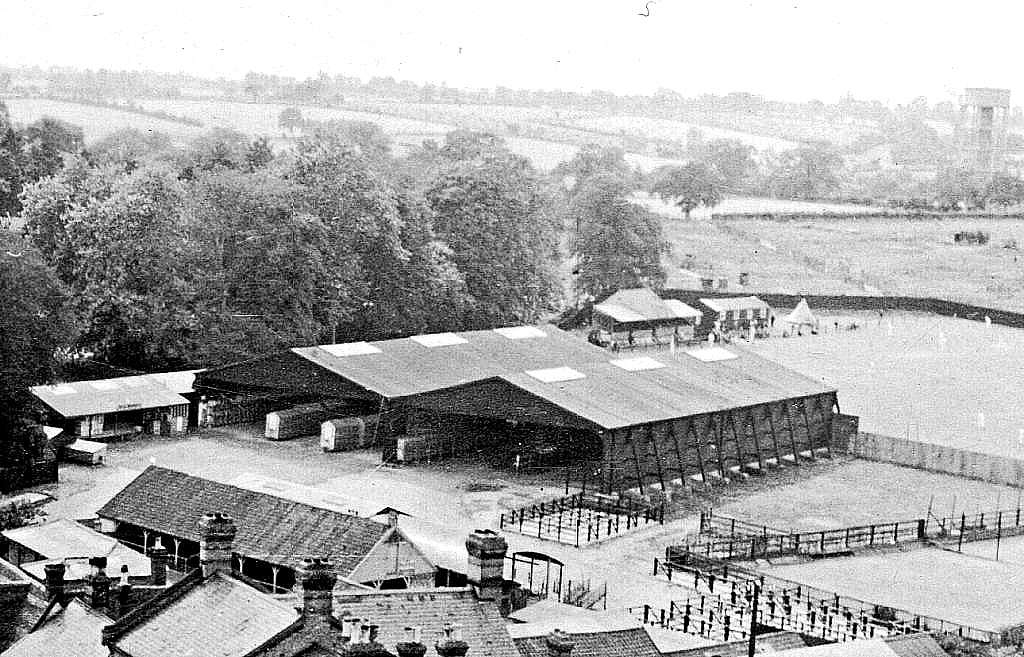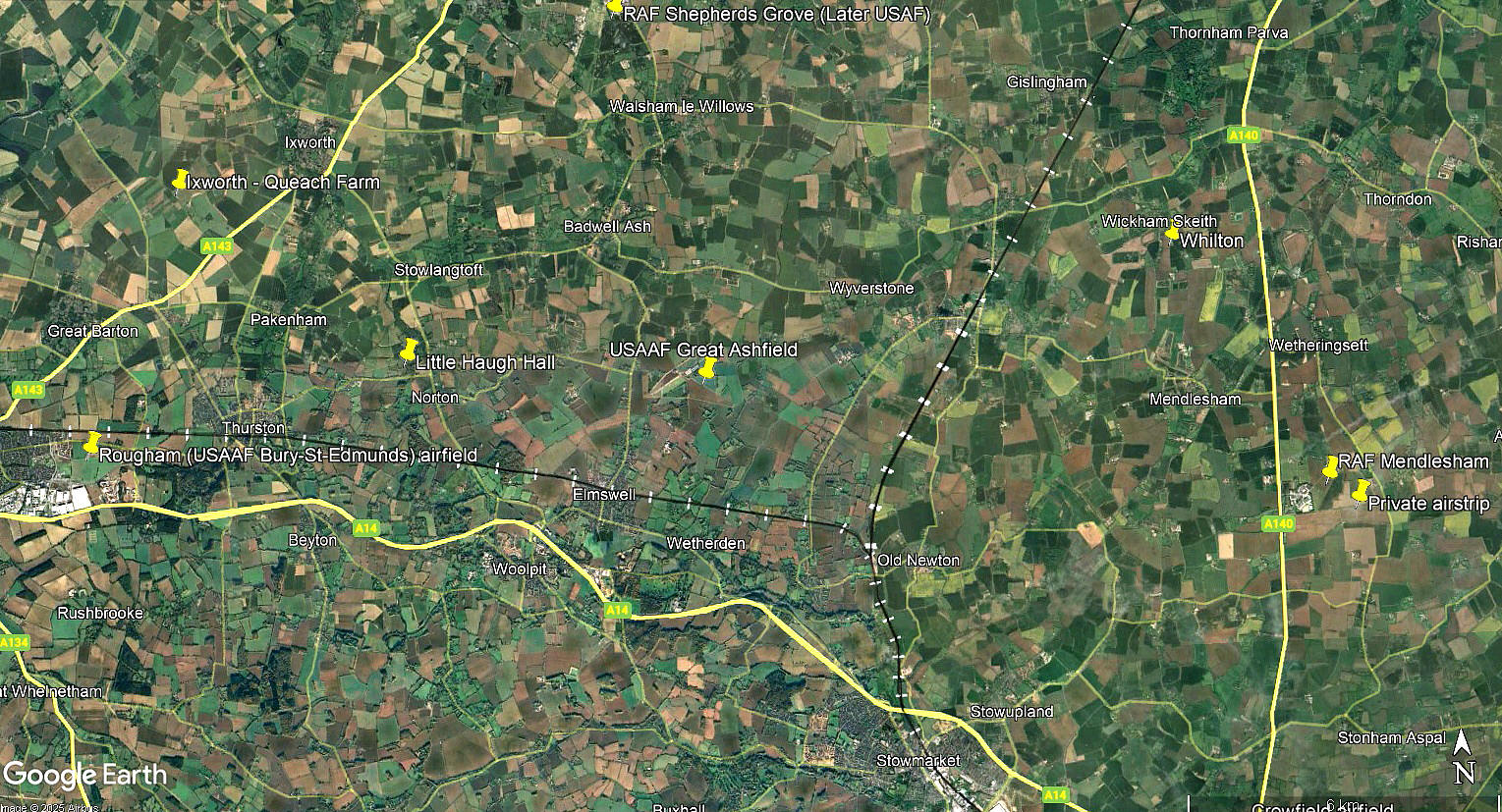Elmswell
Note: This WW1 aerodrome was later subsumed within the area occupied by RAF GREAT ASHFIELD which was used by the USAAF in WW2. See seperate entry.
ELMSWELL: Military aerodrome
Military users: RFC (Royal Flying Corps, then RAF (Royal Air Force)
Originally Night Landing Ground. Later Home Defence Flight Station and Squadron Station (1917 to 1919)
51 [Home Defence] Sqdn (1916 to 1917) (Royal Aircraft Factory B.E.2 and B.E.12 types)
75 [Home Defence] Squadron (Royal Aircraft Factory B.E.2e initially, exchanged for the F.E.2b, later Avro 504K)
Location: In/near Elmswell E of the A1088, N of the A14, about 8nm E of Bury St Edmunds
Period of operation: 1916 to 1919
Site area: 77 acres 686 x 549
A MICHAEL T HOLDER GALLERY
We have Mike Holder, a great friend of this 'Guide', to thank for providing these items he has found.
The map showing the extent of the ELMSELL WW1 aerodrome within the GREAT ASHFIELD WW2 USAAF air base is courtesy of the Elmswell History Group. Photo One is of 75 Sqdn Avro 504Ks in the summer of 1918.
Photo Three shows a group of 75 Sqdn air mechanics engaged in recovering a crashed BE.12 in the summer of 1918.
The advert was published in the Bury Free Press on the 17th July 1920. The picture of the 'recycled hangar', at Stowmarket cattle market in the 1920s, is also from the Elmswell History Group.
The local area view is from my Google Earth © derived database - the location labelled as GREAT ASHFIELD.
.
NOTES: As said many times, this is only intended to be a 'Guide' to various flying sites, and the dates of operation are intended to reflect when most of the flying took place. For example, relinquishment of ELMSWELL was notified in November 1919 but confirmed in January 1920.
The history of the Home Defence squadrons during WW1 is very interesting, not least because they pioneered night flying, in those days often a very precarious business. The reason for this being to intercept German airships on bombing raids, typically known as Zeppelins although others were built by at least one other company, and later of course, the then huge Gotha biplane bombers.
We'd love to hear from you, so please scroll down to leave a comment!
Leave a comment ...
Copyright (c) UK Airfield Guide















